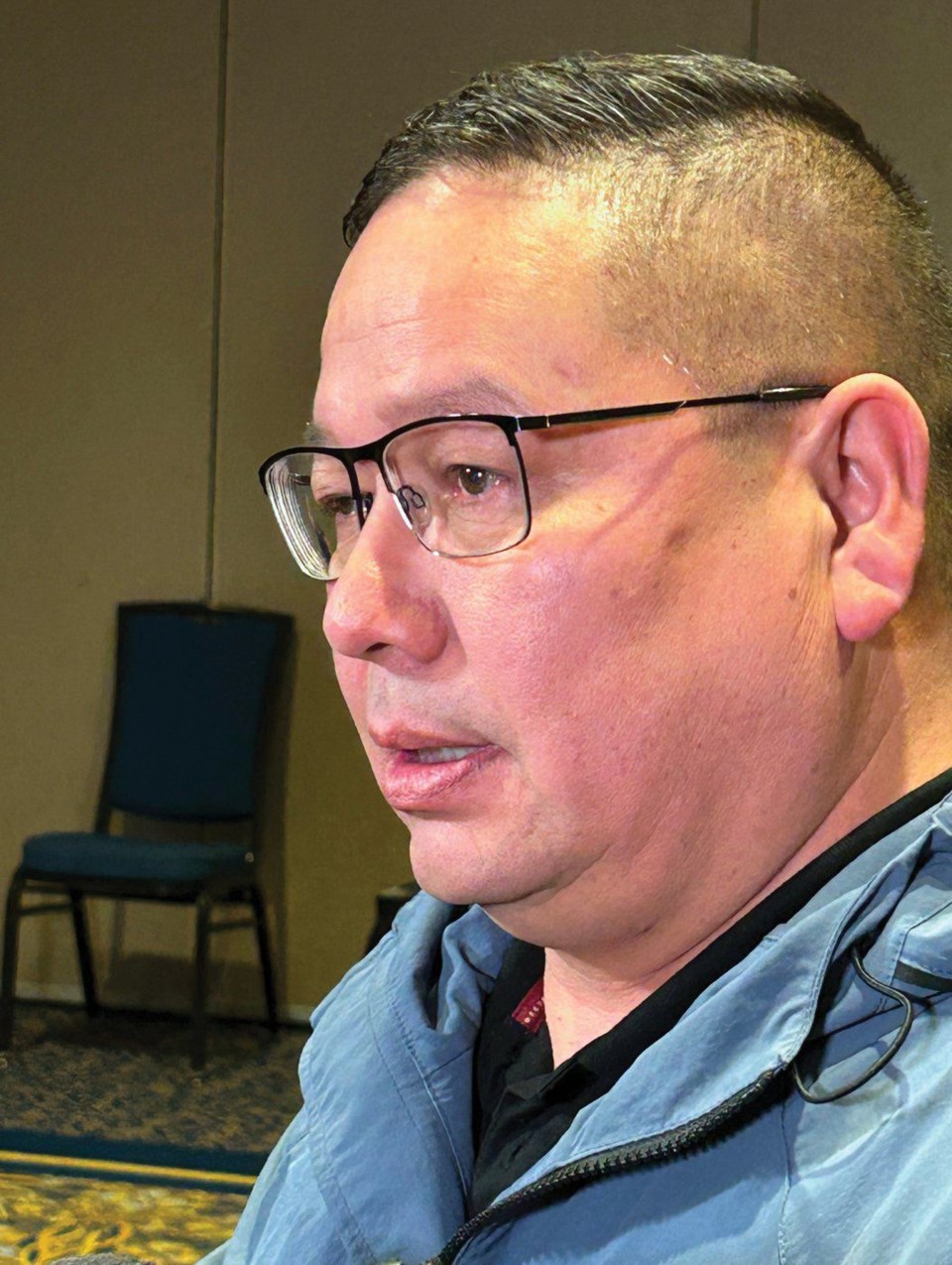SASKATOON — By now, everyone across the country knows exactly where the James Smith Cree Nation is located. Since one of the worst mass murders in Canadian history erupted in early September 2022, a pair of inquests finally answered questions held by those who continue to mourn loved ones.
In January, a three-week coroner’s inquest was held in Melfort for the 11 people murdered by Myles Sanderson and a subsequent inquest wrapped up at the end of February around his in-custody death. After a combined month of testimony from more than 40 witnesses and 33 jury recommendations, a sense of conclusion has been felt by many.
But not all.
JSCN Chief Wally Burns says it’s time to focus on healing through ceremonies now more than ever.
“We’ve got to forgive. To heal you have got to start moving forward, to forgive. It’s one of the things that was given to us, not from an early age, but through our lifestyle,” he said. “That’s one of the things that I really like is ceremonies dealing with our elders, our youth and also community members that want to come and join us in prayers and songs. I really love promoting our culture because that’s the only thing that nobody took away from us. And we’re still promoting it—not only with ourselves but with our youth.”
He credited the response of police and emergency crews during the mass stabbing event and for sharing their experience during the inquests.
“I’m very thankful for all of them for coming together and making sure that everybody was safe,” Burns said.
One issue Burns continues to advocate for is a national inquiry into the events of Sept. 4, 2022.
“I really want a national inquiry, rather than just an inquest that had just happened,” he said. “I think, moving forward with all the information, and I think we’ll probably get somewhere in regards to funding with the federal government. That’s one of the things that I really push and in regards to the justice file, we have a variety of meetings with the minister and moving forward in regards to a strategic plan on how we can come together and work out something better than just an inquest.”
A deeper dive into root causes is what’s required in Burns’ view.
“The system failed to help Myles Sanderson. We see his mental health, addictions, and the root causes of his anger were not corrected inside the system. I fear this could happen again without mandatory participation in culturally appropriate programming to rehabilitate criminals,” he said. “We are calling on the federal government to sit at the table with us to address the systemic issues that contributed to the deaths in James Smith Cree Nation.”
Other leaders in the tri-nation of JSCN point to the prison system as another key area where further supports are in desperate need.
“We want Correctional Services Canada held accountable,” said Peter Chapman Band Chief, Robert Head. “Indigenous people represent over 80 per cent of people in Canada’s prisons. From our own accounts, we know intergenerational trauma, poverty, and addictions contribute to people turning to crime. As we work to change external pressures, Canada needs to take the reform of prisoners seriously and rid the jails of drugs and gangs. We know offenders who enter the prison system are at risk of becoming more criminalized and put at odds with organized gangs. The system is failing our people by not caring to focus on rehabilitation.”
On-reserve aftercare programs and transition housing for people leaving incarceration are other ideas the band is suggesting.
“Many First Nations people have turned their lives around when properly supported in the community after incarceration,” said Chakastaypasin Chief, Calvin Sanderson. “We know culture and ceremony improve physical and mental health by instilling a renewed sense of pride and identity. We want housing that encourages sober living, land-based teachings and job skills training to be part of inmates’ healing journeys. We need those supports for them as they make their way back to our communities.”
While dozens of recommendations to various entities emerged from the two inquests, they are not binding obligations. During the Feb. 26-29 inquest, three of the four recommendations were addressed to the RCMP.
“I think their recommendations were very relevant to the incident as it unfolded,” said RCMP Assistant Commissioner Rhonda Blackmore. “We have to remember that this incident was an incredibly high-risk incident, outside of what we refer to as day-to-day policing. We will take those recommendations back, we’ll review them and look at where we can implement them and what we can do to address the recommendations.”
Burns and others have also been calling for policing on-reserve, a topic Blackmore noted a willingness to assist in.
“My opinion is really not relevant in what that looks like, because they want self-administered policing,” she said. “So we need to help them get to that point. That’s where the important piece is. For too long, First Nation people have been told, ‘This is what’s best for you,’ and that has to stop. As they move towards being self-administered, we are here as a partnership; we see this as a partnership with them.”




